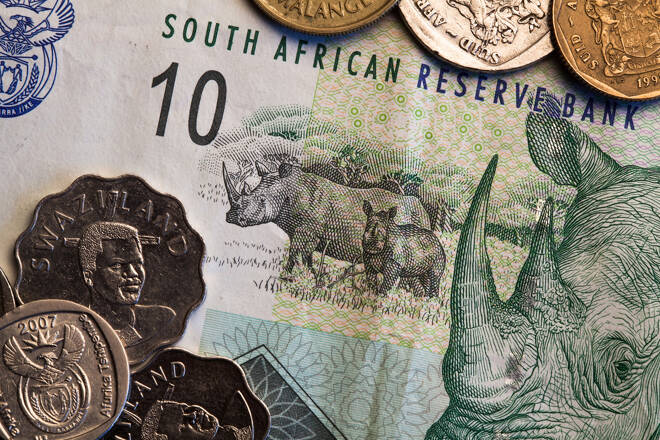Advertisement
Advertisement
South Africa Mulls Digital Rand, Expects Crypto Regulation in 2023
Updated: May 19, 2022, 13:43 GMT+00:00
South African Reserve Bank wants crypto regulation to prevent theft and money laundering and hopes to introduce it within nine to 15 months.
Key Insights:
- South African Reserve Bank deputy governor says digital rand is a few years away.
- The South African CBDC could cut the high cost of cross-border payments for banks.
- The central bank readies for crypto regulations in 2023.
Cryptocurrency is gaining traction in South Africa after the government made it clear that it is taking cryptos very seriously. The South African Treasury announced further crypto regulations in the Budget Review 2022.
Last month, the South African Reserve Bank (SARB) concluded technical proof-of-concept for a wholesale central bank digital currency (CBDC) settlement system. Dubbed Project Khokha 2 (PK2), this marks the second phase of CBDC launched in 2018.
Additionally, SA is also a part of Project Dunbar, a CBDC initiative for international settlements, along with the central banks of Australia, Malaysia, and Singapore.
Digital rand is a few years away
In March, the central bank said that a digital rand is being explored as a way to improve international banking. The SARB deputy governor Kuben Naidoo has now given a possible timeline for a roll-out.
In his interview with Reuters Wednesday, Naidoo said that a digital rand or a CBDC would turn up in a few years. He noted that the digital rand would work to reduce the high cost of cross-border payments for banks.
It remains a nightmare for South Africans who initiate money remittance from SA to other countries. This is because, according to a World Bank report in 2021, South Africa remains the costliest G20 country to send remittances from. Naidoo said,
“We’re still learning, we’re still experimenting [CBDCs].”
However, he did not mention how long it would take for the central bank to fully implement a digital rand.
Crypto regulations coming to South Africa
The deputy governor further said that regulation of crypto assets is soon coming into force. He suggested that the government regulation of cryptos such as bitcoin (BTC), and ether (ETH), might come to light in the next nine to fifteen months or in 2023.
The South African Reserve Bank is concerned about the possibility of criminal activities associated with cryptos. The bank believes that a proper crypto regulation would prevent theft, money laundering, and undermining of monetary policy. Naidoo noted,
“If crypto assets were to become a very ubiquitous currency, you could undermine the authority of the central bank.”
Additionally, South Africa’s Financial Sector Conduct Authority (FSCA) said in December 2021 that it is preparing a regulatory framework for cryptos to protect vulnerable members of its society.
The regulator said that it is exploring ways to establish rules on how the trading of crypto assets should be conducted. The watchdog said that it would unveil the regulations this year.
The role of cryptocurrencies is rapidly increasing in the African continent. Notably, Chainalysis ranks Kenya, South Africa, and Nigeria among the top-10 countries for cryptocurrency use.
Last October, Nigeria debuted Africa’s first central bank digital currency, dubbed eNaira. The digital naira promised to make financial transactions “easier and seamless” for the entire population.
About the Author
Sujha Sundararajanauthor
Sujha Sundararajan is a writer-journalist with 7+ years of experience in Blockchain, Cryptocurrency and in general, FinTech news reporting. Her articles have featured in multiple journals such as CoinDesk, Protos, Bitcoin Magazine, CCN, Asia Blockchain Review, BeInCrypto and EconoTimes to name a few. She holds a Master’s in Journalism from the Indian Institute of Journalism and New Media and is also an accomplished Indian classical singer.
Advertisement
